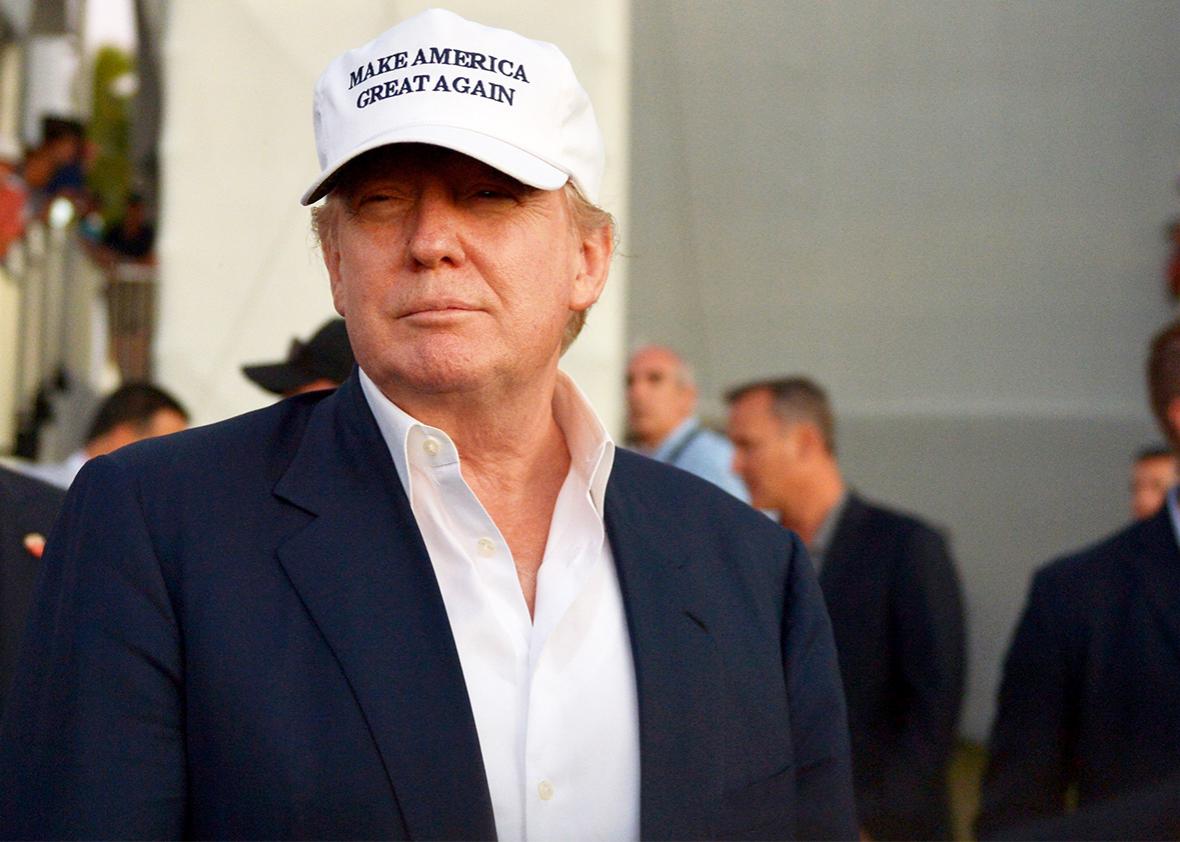In recent weeks, a handful of conservative thinkers have awakened to what decades of bad-faith populist demagoguery have wrought in the form of Donald Trump.
“It is the Republican Party whose failings now threaten the well-being of American democracy,” neoconservative Robert Kagan wrote in the Washington Post last week. “Can party leaders now rise above the party to save it?” The next day in the Post, conservative columnist Kathleen Parker chimed in: “The death of this party—of know-nothing ugliness and outright fascist rhetoric—might be a blessing, a cleansing of the palate before a resurrection of the party of limited government and individual liberty.” At the Conservative Political Action Conference, or CPAC, this weekend, the Christian right radio host Steve Deace told me, “It grieves my soul that Trump is being successful by playing to the stereotypes that liberals have of conservatives.”
Certainly, Trump was not popular at the annual gathering of conservative activists and politicians. He came in a distant third in CPAC’s straw poll, with 15 percent of the vote. (Ted Cruz won with 40 percent, and Marco Rubio won a rare second-place finish with 30 percent.) Had he not canceled his scheduled appearance on Saturday, some activists were planning to walk out of his speech; he almost certainly would have been booed.
Yet after spending three days talking to many conservatives at CPAC, I’ve concluded that the opposition to Trump is not nearly as staunch as we might expect. Most of the Trump opponents I spoke to didn’t see him as a paradigm-shattering threat to the Republic. They simply saw him as their less-preferred presidential candidate. That’s why it’s a mistake to view the GOP as entirely polarized between the Trump and not-Trump wings. Kellyanne Conway, the conservative pollster and president of a pro-Cruz super PAC, told me that Trump is the second choice of most Cruz voters. “The one-two punch of Trump and Cruz has shown that this is a conservative populist party,” she told me.
Of Mitt Romney’s warning about the dangers of Trumpism, Conway says, “If Gov. Romney really thought his message was going to be so resonant among the conservative faithful, he would have delivered it here at CPAC. But then he would have risked being booed. And he would have risked running into a movement that’s fairly unified in its thirst to beat Hillary Clinton in the fall.” In other words, despite the protestations of aghast intellectuals and religious purists, conservatives will eventually fall in line behind Trump if that’s what it takes to win.
I thought Grover Norquist, the president of Americans for Tax Reform and a central figure in right-wing organizing, might express qualms about Trump. After all, Norquist is an advocate of immigration reform; his wife is a Palestinian Muslim, and he is loathed by Islamophobes for his efforts to bring Muslims into the Republican Party. In the course of a 45-mintue conversation, however, he was far more disdainful of the anti-Trump forces on the right than of Trump himself.
“There’s a difference in the conservative movement between structures and people that actually move votes, and people who like to write op-eds and give speeches and are on TV and pontificate,” he told me. “A chattering class that doesn’t move votes is unhappy that this other guy who goes on TV for a reality show moves more votes than they have.”
In the end, Norquist says he’s comfortable with any of the four remaining Republican candidates. “I think if you look at any of the guys running for president, none of them will steal your guns, they’ll all cut taxes, they’ll all do entitlement reform on means-tested entitlements,” he says. “They have a different temperature on the way they speak about immigration, but at the end of the day, you’re going to have border security and more guest-worker programs. Anybody’s better than Hillary. The counter-argument is a little tough to take from somebody who just thought it up last week.”
At CPAC, the real anger was reserved for Republican elites who might try to manipulate a brokered convention to anoint a candidate from the party’s establishment. “The state of the Republican Party is not sound,” right-wing pundit Michelle Malkin announced from the CPAC stage, her lips curled in contempt. She accused “D.C. power brokers” of engaging in a “fragging” against the conservative grassroots. “GOP elites who always demand that conservatives hold their nose won’t do it themselves when they don’t get the choices they want,” she said.
In the end, though, I think Malkin is wrong: Most GOP elites will hold their noses and vote Trump if that’s what it takes to stay in power. On Friday evening, I wormed my way into a group of middle-aged establishment conservatives—veterans of the George W. Bush White House and high-level Republican congressional staffs—who were drinking at the CPAC hotel lobby bar. One of them was pro-Trump, and two were opposed to him. I asked one of the Trump foes if he fears violence if Trump is denied the nomination at the Republican convention. He rolled his eyes like it was the most melodramatic question he ever heard; to him, whatever happens, this is not a potential emergency situation. “I just want to beat Hillary,” he shrugged. If fascism is really coming to America, conservatives are not going to be on the front lines against it.
Read more Slate coverage of the GOP primary.
